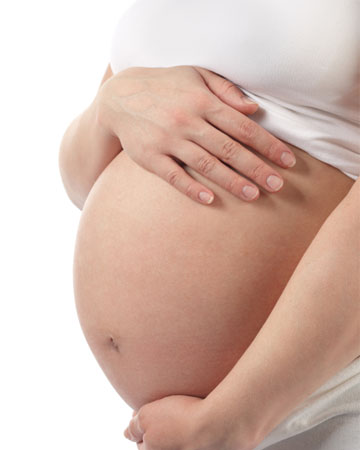
What you need to know to conceive
If you suffer from endometriosis — a condition when some of your uterine lining abnormally implants outside of the uterus during menstruation, conceiving can be challenging. Here's what you need to know about getting pregnant after endometriosis.
If you are one of the over 5 million women in the United States who have endometriosis, you may be wondering if you'll be able to get pregnant naturally or easily.
I know the physical and emotional pain endometriosis can cause, as I had a pretty severe case of it. A few years after having a laparoscopic procedure to remove scar tissue, I wanted to have a baby. My doctor told me, "Since you have a history of endometriosis, give it six months to a year to get pregnant." Much to my happy surprise, I conceived immediately. I'm one of the lucky ones — for many women, pregnancy after endometriosis doesn't happen right away — or even at all, without medical assistance.
More about understanding endometriosis>>
Dr. Charles Dubin, founder of the Endometriosis Center of Southern California, explains, "There are two major ways endometriosis can impact fertility. The first is mechanical. If the disease is advanced it can distort anatomy making it difficult for sperm [to] transport through the tube — for example adhesions — or damaging the ovary and interfering with ovulation or ovum pickup by the fallopian tube. The second mechanism — even in the presence of a small amount of disease — is by endometriosis making chemicals that can interfere with fertilization."
Here are Dubin's answers to three common questions about pregnancy after endometriosis:
Will I have a harder time conceiving than a woman who never had endometriosis?
Dubin says, "Endometriosis can reduce the fertility rate per month leading to sub-fertility making it harder for women with the disease to conceive. This results in taking longer to get pregnant than the average fertile woman. In cases of severe amounts of disease a woman may be unable to conceive by natural means."
Learn how to protect your fertility>>
What types of procedures can help women with endometriosis?
Dubin explains, "Surgical removal of endometriosis — laparoscopic excision of disease — has been demonstrated to improve fertility rates in women with endometriosis."
About how long after trying to conceive should a woman who had endometriosis be concerned/consult with a specialist?
"In general, women should seek help if it takes more than six months of trying without conception in women older than 35 years, or one year if they are less than 35 years. However, in cases of pelvic pain or when severe disease is identified, intervention earlier may be warranted," Dubin says.
Dubin adds, "It is best to seek advice earlier than later from a medical professional experienced in the management and treatment of endometriosis. In particular someone experienced and knowledgeable in fertility and advanced laparoscopy — particularly excisional techniques."
![]() Bottom Line
Bottom Line
If you want to get pregnant, talk to your doctor about your history of endometriosis so together you can figure out the best course of action.
Read more about fertility
Help for endometriosis sufferers
Infertility: What it is and what can be done
10 Fertility-boosting tricks